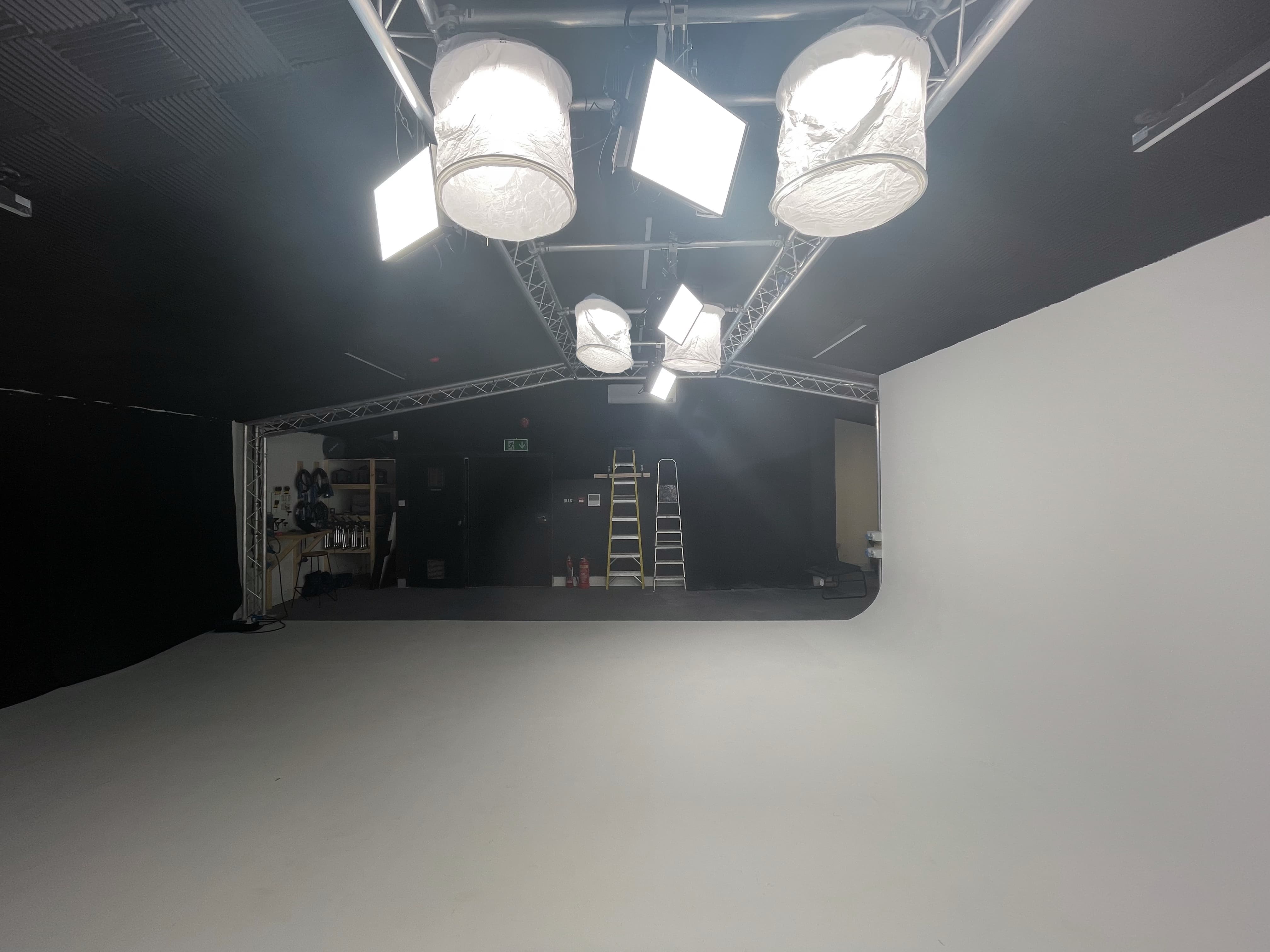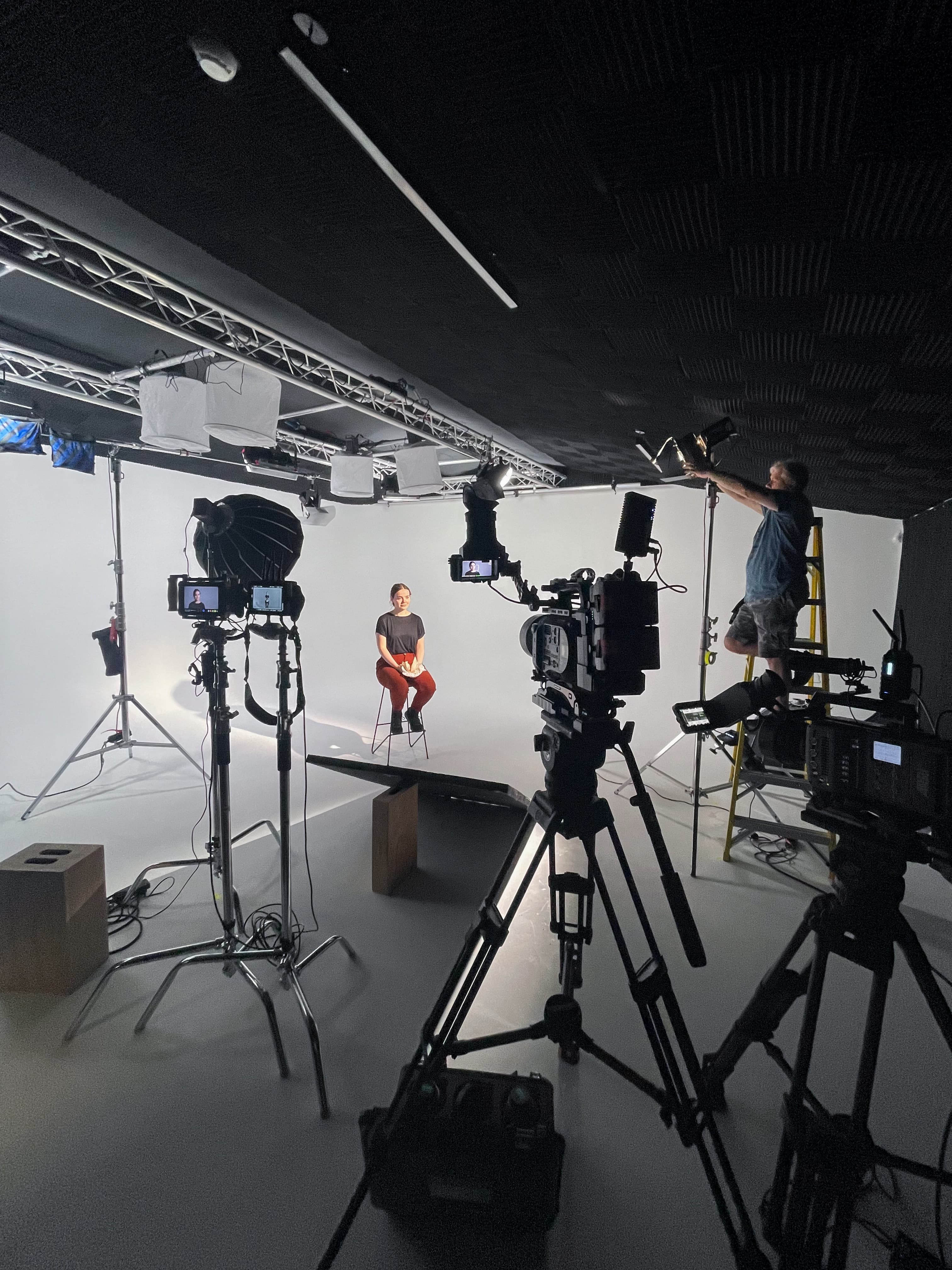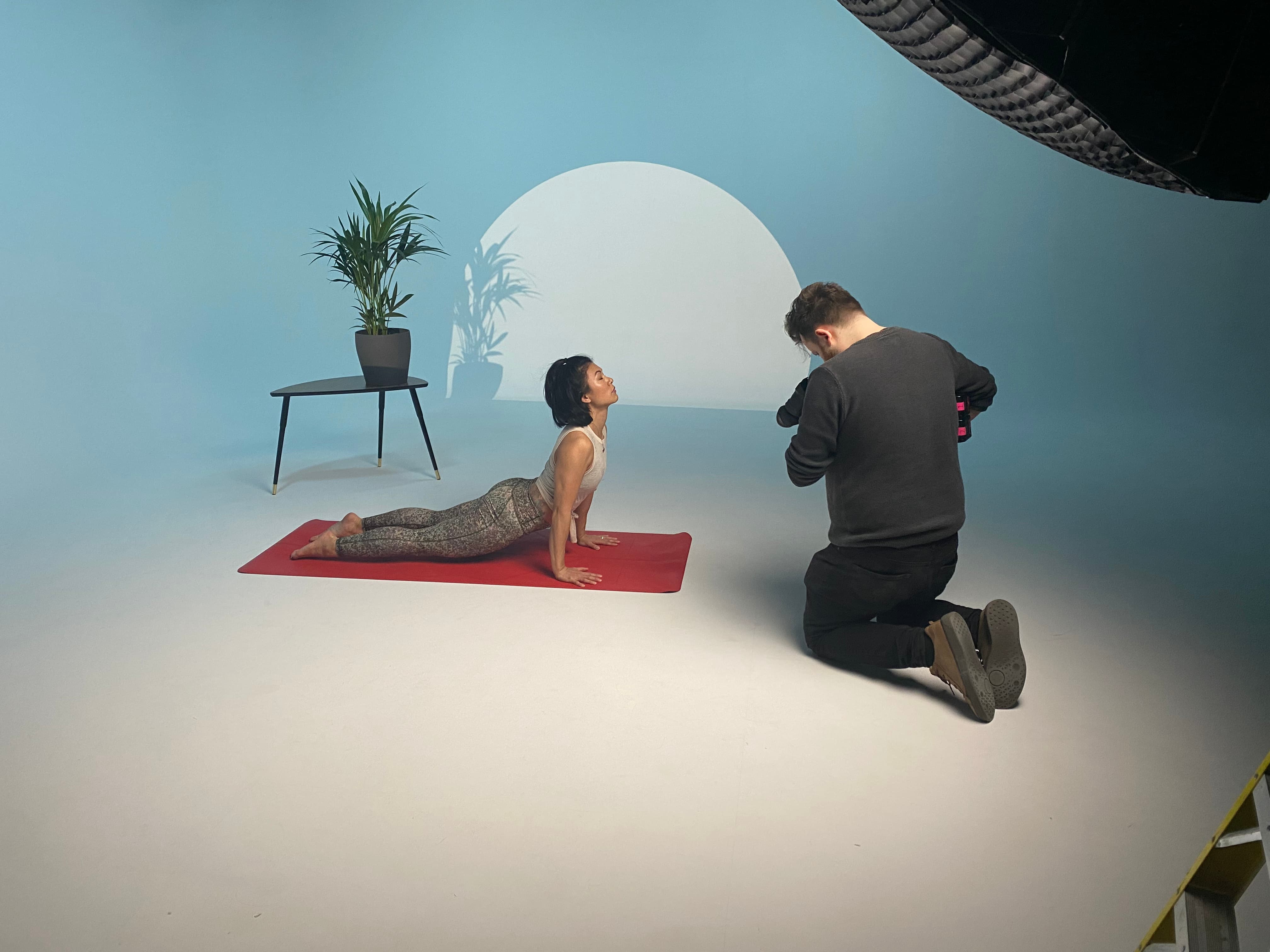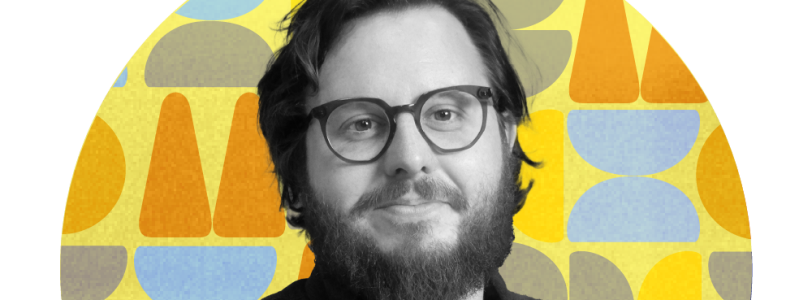Could you first introduce yourself to the reader?
I am Davide Lorente, Filmmaker, Creative business owner and Dad. I’ve recently celebrated my first anniversary of launching CASA Creative and CASA Film Studios. Before opening CASA, I was working as a freelance Director of Photography. It took me around the world filming various projects, ranging from KFC ads for the Colonel to documentaries for HM the King.
What does your job involve? Give us the typical outline of a day?
My day typically starts in the office, welcoming any film crews filming in the studio. I’ll then be turning my attention to our in-house projects. So, I’ll be catching up with our producers to see the progress of projects both in the planning and finishing stages (pre-production and post-production). Around this time, I’ll give feedback and steers to the team.
The rest of my time is spent conversing with various people — clients, suppliers etc. You need to have a streak of extrovert to keep going in the job. 
Can you tell us about CASA Creative Studios? Why did you decide to set it up, and how did you do it?
CASA Creative Studios is a film-first creative agency with a sound-proof film studio. We have three core focuses: Food, Human Stories and Sustainability.
I decided to open it because I wanted to have more influence over the films I was making and to bring in other people who shared the same passion. I also wanted to make a space where people felt at home and had a sense of belonging, hence the name and tagline: Our CASA is your film’s home.
Our approach is filmmakers first and business second. Many people only see the industry as purely business, and that's fine, but as we’ve proven, clients can tell that we love what we do and we’re not just trying to squeeze them.
Very long story short on how I did it: I got a good old-fashioned loan from the bank. I had to present a rock-solid business plan and evidence my experience in the industry. Then begged them to say yes. They eventually did, and then real work started. I had to find a space, contractors and specialists. The build took over 5 months. Then I had to build a team, infrastructure, offices, client bases, and processes. It was a lot and is still on-going!
What’s the difference between CASA Creative, CASA Engage (coming soon, I note) and CASA Studios? How do the three interlink?
They are all connected by the same skill sets but tailored to different markets.
Creative is for our bigger projects: Films, Ads and Creative Strategy. We’re currently working with a brewery to help take them from being a craft brewer to being a household name.
Engage is for short-form, consistent audience engagement —anything from Social Media to Internal Comms. We help organisations find their audience and talk about things they’re both interested in.
Studios are our facilities business; we rent our soundproof filming spaces and equipment to other production companies. We’ve welcomed other productions from Netflix, Disney+, BBC among others.
 Can you talk about the CASA Crew Membership? What benefits would a young person get from signing up?
Can you talk about the CASA Crew Membership? What benefits would a young person get from signing up?
CASA Crew is our way of building community with other local filmmakers. The freelance life can be quite disconnected, and as a studio, we tend to be the central place where teams meet. So, leaning into this, we run courses, social events and offer free studio time to members. We also use CASA Crew to find freelancers for our productions.
If you’re local to us and want to be involved, sign up!
Is there a particular project or shoot that you’re particularly proud of?
We recently made a short documentary with the founders of the Natasha Allergy Research Foundation. Their story is so powerful and brings tears to my eyes every time. We’re incredibly passionate about their work as an organisation and how they’ve turned personal tragedy into a positive change. In their short time being established, they’ve already changed UK law and are now working on amazing research which will have a global impact. As a business, we have decided to support them in all their film needs at zero cost.
What’s great about your job?
When a project comes together as you imagined, or even better, and you see it in the real world. That feeling is gold.
Also, building a team is fantastic. Seeing them work together to make great films is incredibly rewarding.
What are the bits you don’t like or find challenging?
Admin, accounting and more admin.
What are the highlights of your career to date?
Filming HM King for his environmental series called RE:TV is a stand-out memory.
What was your career path into this job? Have you also worked outside the arts?
My career path is unconventional, and I hope it continues to be so. The week after sixth form ended, I was 17 and had secured a two-week work-experience job at FiftyFifty Post Productions in Soho. I was on a gap year and was flirting with the idea of going to university, but FiftyFifty offered me a full-time job in the industry, so I grabbed it with both hands and never looked back.
I moved companies a couple of times, moved into the camera department, worked my way up, got miles on the clock and then went freelance. Did that for about seven years and then decided to move into running a business.
How has your background, upbringing and education had an impact on your artistic career?
The Lorente family trade is artisan carpentry - spanning three generations for the Catholic church. So being a guilt-ridden, idealistic perfectionist is in my blood.
Joking aside, being a creative and practical person was all part of how I was raised. I spent a lot of time in my family's workshop. Being creative wasn’t this thing I did during art class once a week, it was very much an everyday thing.
Did you have any role models or inspirations growing up?
Too many to list, but my family are incredible role models to me. Everyone has followed different paths, but no matter what they do, everyone gives it their all.
From a professional stance, early influences: Gareth Edwards, Michel Gondry, Stanley Kubrick, Alfred Hitchcock, Guillermo del Toro & Fernando Alonso.
Can you describe your biggest challenge so far in your career? How did you overcome it?
Starting a business has, by far, been the biggest challenge. I feel as though I am still overcoming it but one thing I could say, things are not (always) as bad as they seem in the moment you’re living them. Sleep on it for a day - or a week if needed.
Have you had a mentor anytime during your career, and if so, how has having one made a difference?
I can’t recommend having a mentor enough, it's the equivalent of finding a shortcut in Mario Kart.
I learnt my craft under many talented and established DoPs, but for learning the industry, the soft skills, and the subtle nuances, I had a great mentor who took the time to talk me through it. And when my thinking was wrong, they told me straight and guided me to the right answers. Thank you, Jermaine. 
You’ve been granted the ability to send a message to 16-year-old you. What do you say?
I would say, “Chill out, you have plenty of time to get started”. I left home at 17 and moved to London to work in a profession. It was a dramatic snap straight into adulthood, and I had to grow up fast. It’s served me well, but it was probably too much, too soon.
I would caveat this advice with;
“This isn’t a free pass to be lazy; do everything with commitment, soak up knowledge, ask lots of questions, try as many different things as possible, travel - meet new people and understand their perspective. Make sure you’re learning. Start getting an idea for your direction in your early 20s. Get serious about it and start committing all your effort in that direction. And have fun!”
Do you have any advice for young people interested in doing your kind of job?
Don’t be a fair-weather rider. If you want to make films, make one now with whatever you’ve got in front of you. What you could do or what you’ve done in an education-based environment, unfortunately, doesn’t count for much in our industry. People want to see what you’ve done in the real world, how that relates to their projects and if you’d be a good fit to work with.
But that's the incredibly exciting thing about this industry; you can work on the projects you are passionate about. You just need to start taking steps in that direction, make a body of work and gradually keep getting better. Don’t let the voice saying “you’re not good enough” get in the way.
Recommended watching Ira Glass - The Gap
If you ever want more info then drop me an email at [email protected], or check out our website www.casafilm.studio









0 Comments